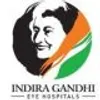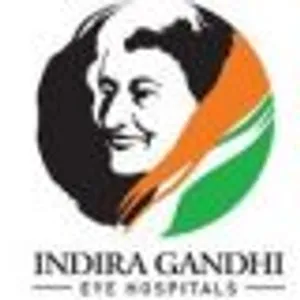Dr. Shireen Mishra Pandey
Location: Lucknow Branch, Indira Gandhi Eye Hospital
Speciality: Retinal Specialist
As the soft winds of September blow through North India, signalling the departure of scorching summer and the onset of pleasant autumn, it's crucial to remember that our eyes, like the seasons, undergo changes over time. One of the most common age-related eye conditions in the elderly population of North India is Age-related Macular Degeneration (AMD).
What is Age-related Macular Degeneration?
AMD is a medical condition which affects the middle part of your retina called the macula. It leads to vision loss in the centre of your field of vision, making daily activities like reading and recognising faces challenging.
Symptoms of Age-related Macular Degeneration
1) Blurred or fuzzy vision
2) Dark spots in the centre of vision
3) Distorted vision
4) Colours appear less vibrant
Causes of Age-related Macular Degeneration
There are two primary types of Age-related Macular Degeneration - Dry and Wet.
Dry AMD: This occurs when cells under the macula deteriorate with age, leading to vision loss. Representing 85-90% of all AMD cases, Dry AMD is more common and less severe than its counterpart.
Wet AMD: Here, new blood vessels grow beneath the retina, leaking fluid and blood, causing the macula to move from its normal place. It's less common but more serious.
Risk Factors
Age
Family history and genetics
Smoking
Obesity
Race (it's more common in Caucasians but has been rising among the North Indian population)
Prolonged sun exposure
Treatment Options
Treatment largely depends on the type of AMD:
For Dry AMD: Nutritional supplements might help reduce its progression. Foods rich in antioxidants, like the Indian spinach or "Palak," can be beneficial.
For Wet AMD: The treatments aim to reduce the number of blood vessels in the retina. Options include laser therapy or anti-VEGF medications.
Prevention and Care
Autumn in North India is a time of festivals and family gatherings. Ensure that you get your eyes checked regularly, especially if you're over 50. Early detection can make a significant difference.
Conclusion
Age, much like the seasons, is unstoppable. But with knowledge and timely care, we can ensure that our vision remains as clear as the North Indian sky in September. If you or a loved one is experiencing any symptoms mentioned above, do not delay and book an appointment with us.
Click here to book an appointment with Dr. Shireen Mishra Pandey, our renowned retinal specialist from the Lucknow Branch.


